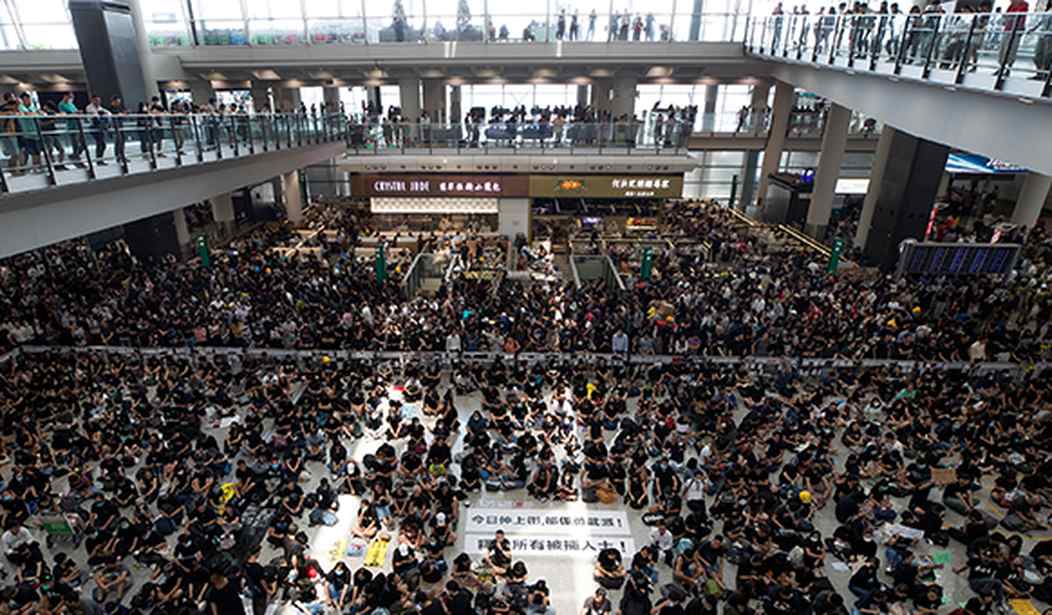There was widespread carnage in yesterday’s session, largely blamed on the trade war and increased chatter about a U.S. recession. The market breadth was ugly, although the overall volume was extremely light, which always creates a session over-exaggeration.
Financial Sector Hit Hardest
When the dust settled, the Financial sector was the hardest hit. This makes me wonder if beyond the headlines and the breathless reporting on Chinese trade, if there isn’t something else the market is saying.
Yesterday, Argentina’s equity market slumped more than 39%. The currency plunged 25% after the primary election results, which indicated a potential massive upset in the October round of voting. Incumbent Mauricio Macri garnered only 36% of the vote after accepting drastic austerity measures from the International Monetary Fund (IMF). The $56 billion loan is the largest in the history of the IMF, and it comes with typical austerity strings.
S&P 500 Index | -1.22% |
Communication Services (XLC) | -1.07% |
Consumer Discretionary (XLY) | -1.45% |
Consumer Staples (XLP) | -0.67% |
Energy (XLE) | -1.18% |
Financials (XLF) | -1.91% |
Health Care (XLV) | -0.95% |
Industrials (XLI) | -1.38% |
Materials (XLB) | -1.59% |
Real Estate (XLRE) | -0.08% |
Technology (XLK) | -1.33% |
Utilities (XLU) | -0.20% |
After decades of economic mismanagement, it’s unlikely U.S. banks have direct exposure to Argentina’s financial instruments. There is also limited exposure to Chinese assets, but U.S. banks are proxies for the domestic economy. Is that the real red flag? I don’t think the country is on course for a near-term recession, but the media is going to go into overdrive on the possibility.
Recommended
Coupling that reporting with the declining stock market, it could become something of a self-perpetuating event, not unlike what we saw in December. It doesn’t have to play out that way, however. Of course, the action in bonds, including the flattening yield curve, is another source of anxiety with respect to the economy. Still, there are mitigating factors for the flattening curve and plunging yields overall.
The news out of Argentina, the unrest in Hong Kong, and thousands protesting Vladimir Putin in Russia have hastened the already mass exodus from emerging market exposure into the U.S. treasuries.
Tariff Hit?
Consumer Discretionary stocks were under a fair amount of pressure, but the biggest losers were largely those companies with a recent history of poor execution regardless of a potential tariff impact:
|
|
Now, That’s a Tax Hit
While tariff cost will be mitigated in a variety of ways, there could be some consumer price increases, but nothing near 10%. Still, when you consider a 10% tariff on $300 billion (an extra $30.0 billion), the market reaction seems excessive. On July 26, the total U.S. stock market valuation (measured by Wilshire 5000) was $31.15 trillion; yesterday, it closed at $29.52 trillion. Does it make sense for the U.S. stock market to lose $1.6 trillion in value over a $30.0 billion tax?
Heck, in June, American incomes increased by $83.6 billion with $69.7 billion in disposable income. Spending was only $44.2 billion, sending the savings rate to 8.1%.
Portfolio
We reduced Financials to a 1 weight and raised Cash to 20%.
Communication Services | Consumer Discretionary | Consumer Staples |
1 | 3 | 1 |
Energy | Financials | Healthcare |
1 | 1 | 1 |
Industrial | Materials | Real Estate |
2 | 3 | 1 |
Technology | Utilities | Cash |
2 | 0 | 4 |
Keep watching bond yields, which reflect a flight to the safety of U.S. treasuries, but without a clear meaning, it leaves a lot of room for guessing.
Today’s Session
The core CPI number for July was 0.3 versus consensus 0.2, and it added pressure to the market. It (very) moderately mitigates the Fed need for cuts or drastic cuts. It really shouldn't change the next decision, which could be a 50-bps cut.
























Join the conversation as a VIP Member